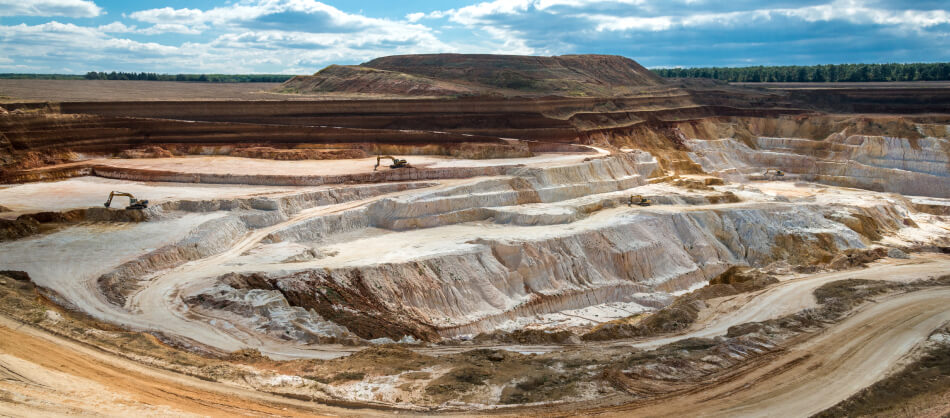Zircon (zirconium silicate)

It is a highly versatile material that finds numerous uses in ceramic applications. It is valued for its high melting point, chemical stability, hardness, and refractory properties. Here are some common uses of zircon in ceramic applications:
Ceramic Glazes: Zircon is used as an opacifier and a stabilizer in ceramic glazes. It imparts opacity and brightness to glazes, enhancing their whiteness and opacity. Zircon is particularly useful in achieving vibrant and consistent colors in glazes.
Ceramic Pigments: Zircon is also used as a raw material for producing ceramic pigments. By incorporating different metal oxides into zircon crystals, a wide range of colors can be achieved. Zircon-based pigments offer excellent color stability and resistance to high temperatures.
Ceramic Tiles: Zircon is employed in the production of ceramic tiles. It is added to the tile body formulation to improve strength, durability, and resistance to wear. Zircon also contributes to reducing shrinkage during firing, ensuring dimensional stability of the tiles.
Refractories: Zircon’s high melting point and refractory properties make it suitable for use in refractory ceramics. It is used in the production of crucibles, kiln furniture, and other high-temperature applications where resistance to heat and chemical corrosion is required.
Investment Casting: Zircon is widely used in investment casting, a process used to create complex and detailed ceramic molds for metal casting. Zircon-based investment materials offer excellent dimensional accuracy, high-temperature stability, and good surface finish.
Kiln Furniture: Zircon-based materials are used in the construction of kiln furniture, such as shelves, posts, and setters. These materials provide high-temperature resistance, dimensional stability, and resistance to thermal shock, ensuring the longevity and reliability of kiln structures.
Dental Ceramics: Zirconia, a form of zircon, is used in dental ceramics for the production of dental crowns, bridges, and implants. Zirconia-based ceramics offer excellent biocompatibility, strength, and aesthetics, making them an ideal choice for dental restorations.
Advanced Ceramics: Zircon is used in the production of advanced ceramics, including cutting tools, ceramic bearings, and wear-resistant components. Its hardness, toughness, and chemical stability make it suitable for demanding industrial applications.
These are some of the key uses of zircon in ceramic applications. Its unique properties make it a valuable material for enhancing the performance, aesthetics, and functionality of ceramic products across various industries.
